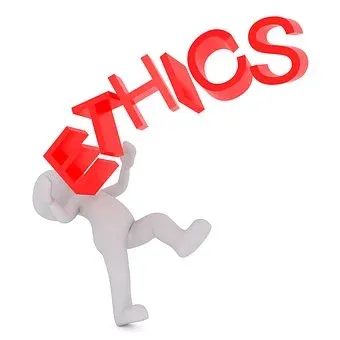
Fuente de Imagen
- La ausencia de una educación íntegra en cualquiera de sus niveles en valores positivos, moralidad y ética propiamente dicha.
- La poca importancia que se le da a la Ética, en las instituciones que las requieren, salvo las actuaciones de los Tribunales Disciplinarios, en cuyo caso son los órganos que conocen de las distintas actuaciones de un profesional que viole las normas Ético - profesionales.
- La no muy clara diferenciación entre la moral y la Ética. La primera abarca las normas que permite la convivencia entre las personas y grupos y la otra abarca la conciencia individual que se considera subjetiva.
La actuación de una persona se puede considerar en tres clases de actos: Uno el que el hombre debería hacer, aquellos que no debería hacer y otros que puede hacer o dejar de hacer.
It is clear that codes of ethics cannot replace the responsibility of personal decision, but a code must aspire to be truly regulatory, and must protect the public interest. It should also be considered that the regulation of professional activities, whether by means of Codes of Ethics or Practice Laws, often omit important aspects such as:
- The absence of an integral education in any of its levels in positive values, morality and ethics itself.
- The little importance given to Ethics, in the institutions that require them, except for the actions of the Disciplinary Courts, in which case they are the bodies that know the various actions of a professional who violates the ethical-professional standards.
- The not very clear differentiation between morals and Ethics. The first covers the rules that allow the coexistence between people and groups and the other covers the individual conscience that is considered subjective.
A person's performance can be considered in three kinds of acts: One the one which man ought to do, those which he ought not to do, and others which he may do or fail to do.